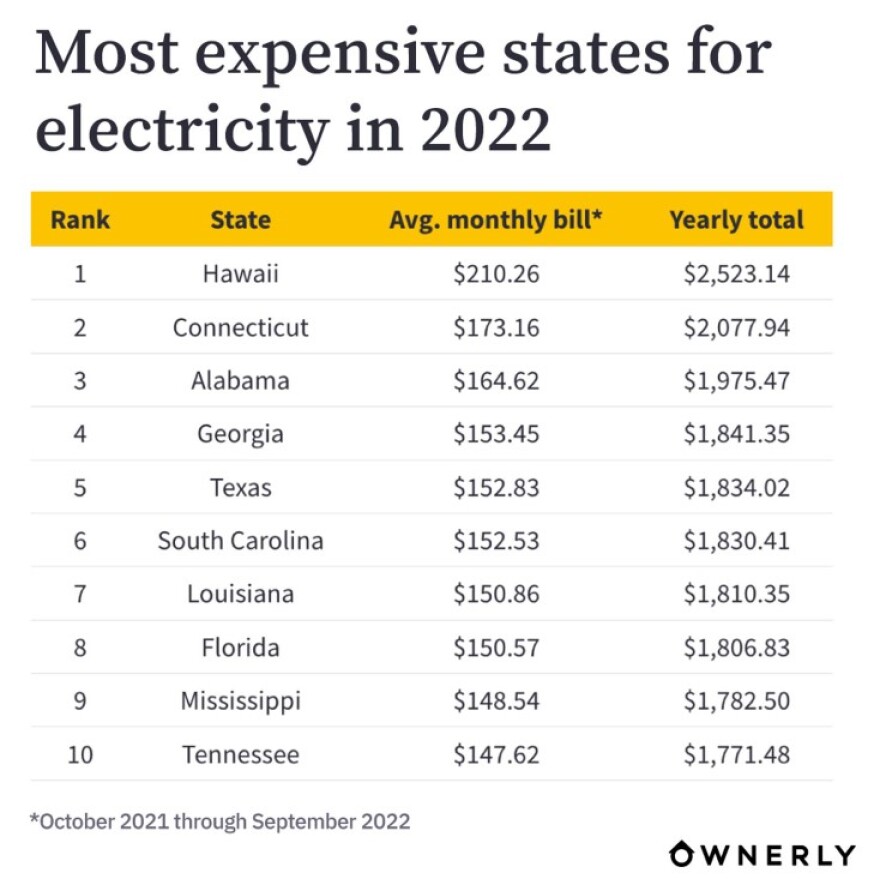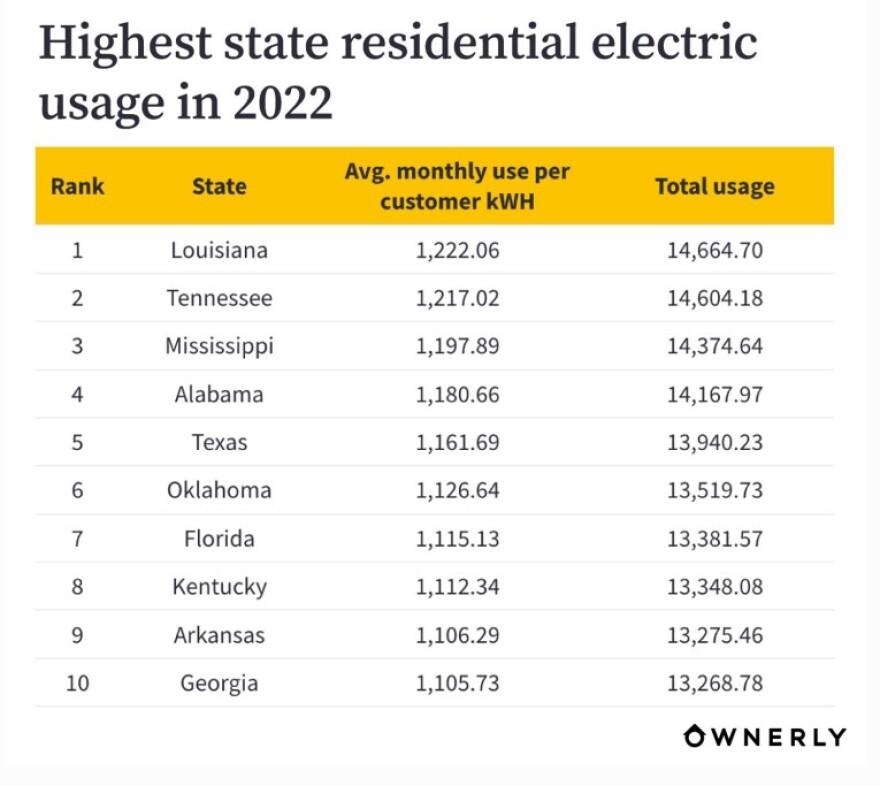In 2022, U.S. consumers faced the highest electricity costs in more than 40 years, due to inflation, a rebounding economy and fuel-related repercussions from the Ukraine conflict, according to home valuation company Ownerly.
Hawaii, Connecticut, Alabama, Georgia, Texas, South Carolina, Louisiana, Florida, Mississippi, and Tennessee were the top 10 most expensive states for electricity bills in 2022 based on data from the U.S. Energy Information Administration.
Click here to view Ownerly’s study on 2022 electric rates.

Ownerly said that last year Americans spent over $22 billion more on electricity, which is an 11% increase from the previous year.
Hawaiians had the highest monthly electric bills in 2022 paying on average $210.26 a month. In contrast, Utah’s residents paid the least at $84.97.
Florida, which was ranked 8th highest, had an average monthly electric bill of $150.51.
"Which brings the yearly total to over $1,800. That's important because we saw an increase of about $20 a month on average in 2022 for Floridians, which is equivalent to $240 a year at a 15% increase,” said Ownerly’s Erin Kemp.
Floridians also used 1,115 kilowatt hours of electricity per month in 2022 -- the 7th highest in the country.

"So, it's really important to know how to save energy at home. One thing homeowners can do is use instead of using a dryer to hang dry their clothes. You can also look into purchasing a smart thermostat, which you can program to only cool your home while it's occupied,” Kemp said.
“And you should also be sure to unplug electronics when they're not in use -- things like chargers, lamps, or small appliances, like toasters, can also save you money. Consumers can also reach out to their energy provider directly.”
Some energy providers offer their customers a free home energy survey to inspect usage and give tips on how to be more efficient.
The Florida Public Service Commission just approved new rate increases for Tampa Electric, Duke Energy Florida, and Florida Power and Light on March 7.
This month, Tampa Electric customers can expect their energy bills to increase by 9.8%, rising 62% since 2019.
Duke Energy Florida customers are receiving an 15.1% increase which will be spread over 21 months, so the current monthly increase will be visible at 3.8%.
In Florida Power and Light’s northwest territories, the rate will increase by 8.3%, and in its peninsular territories by 10.3%.
Back in February, multiple Florida clean energy advocacy organizations launched a collaborative campaign to mobilize the Hillsborough County Commission to push back against rate hikes.




